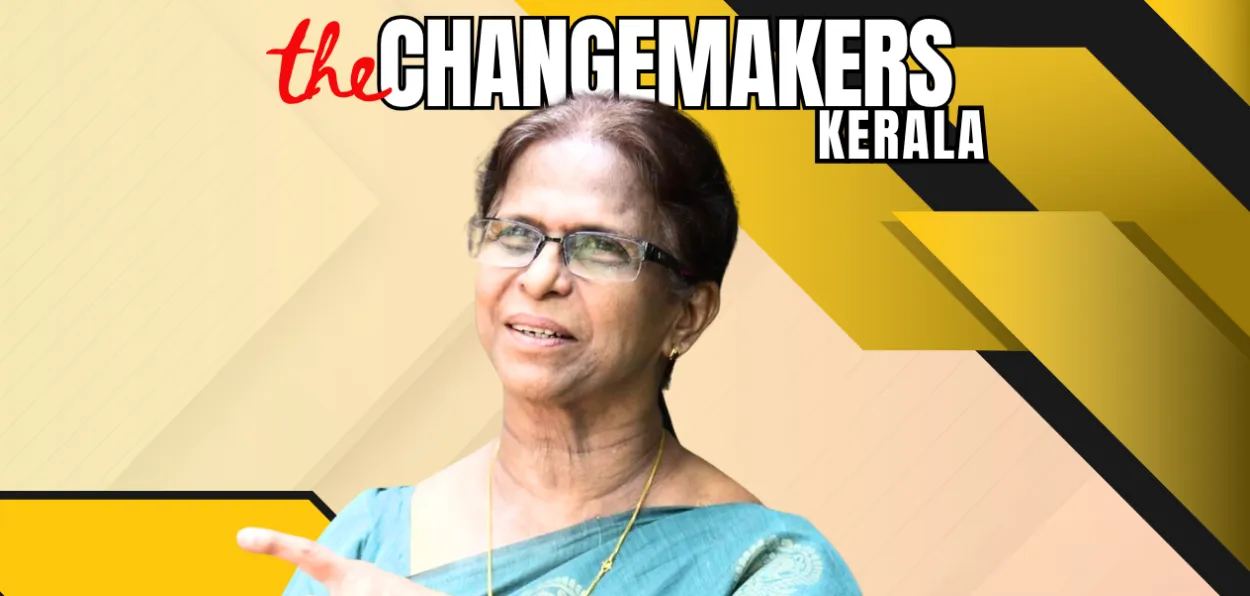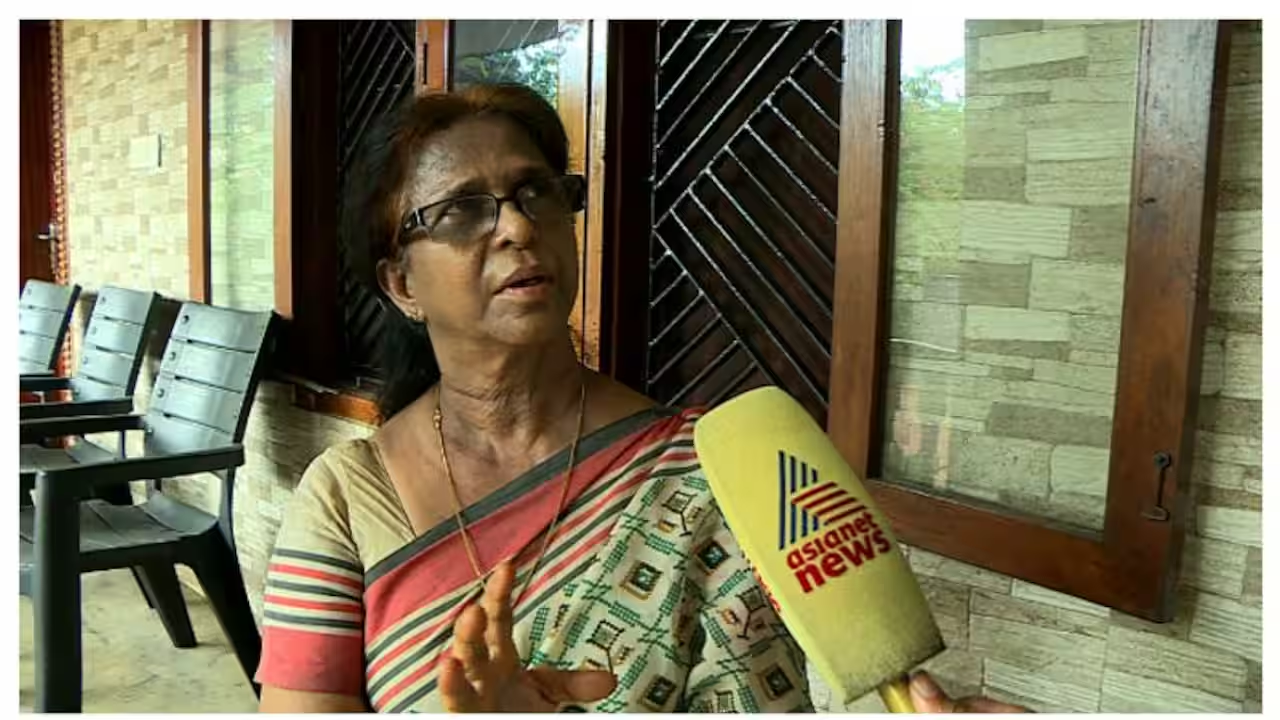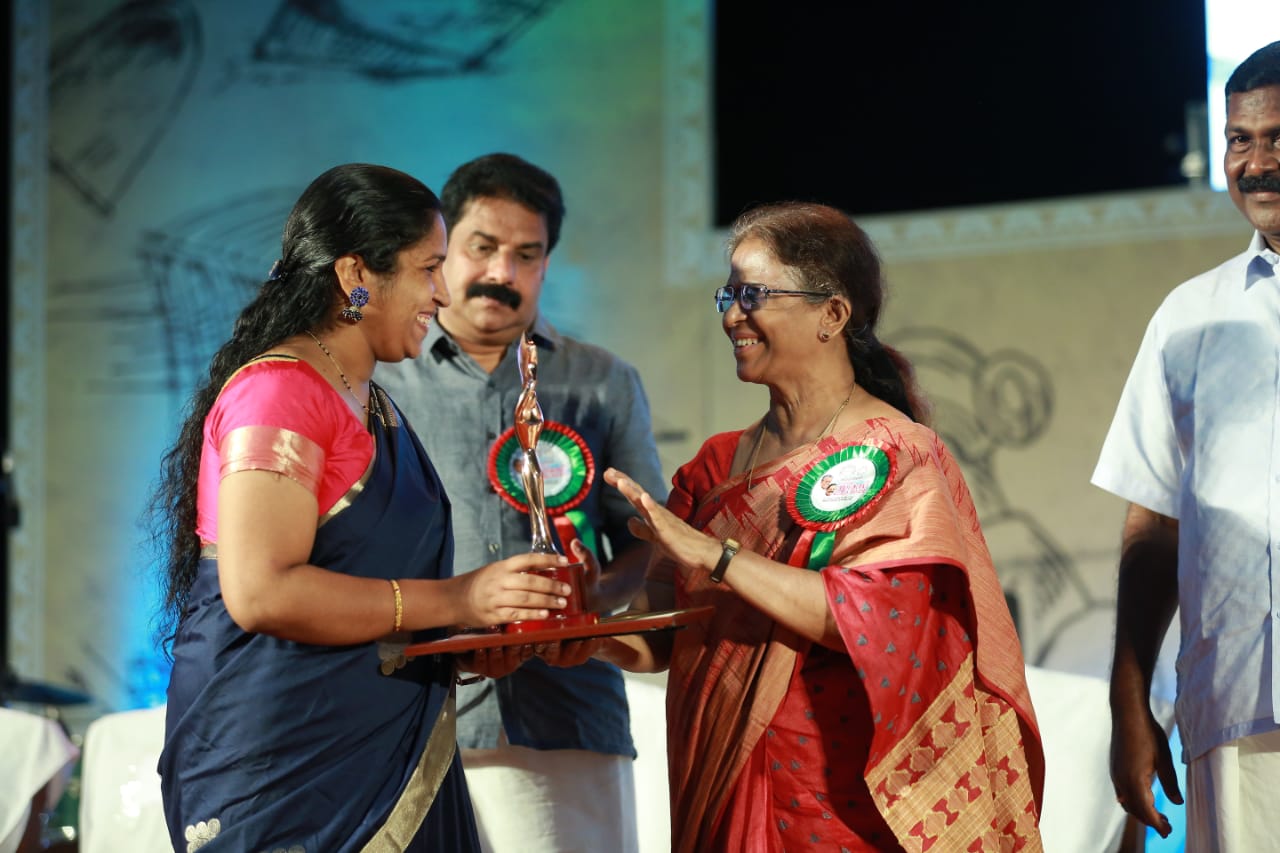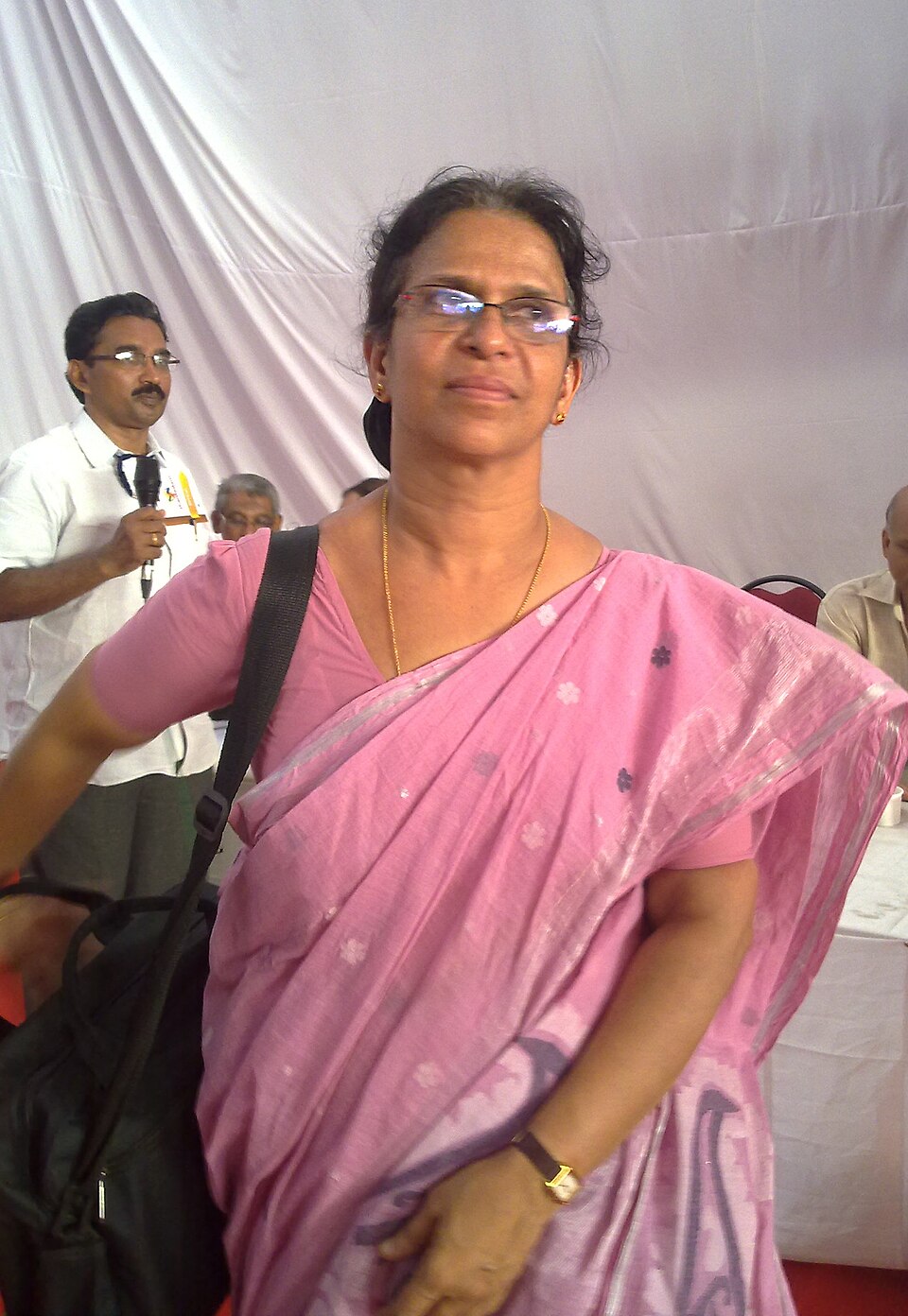
Sreelatha Menon/Trissur
Who is Kadeeja Mumtas?
Is she the Kerala Sahitya Academy award winner for best work of fiction 2010, Basra (Meaning The one without the veil), a successful gynaecologist at Kozhikode Medical College Hospital, or an activist for Muslim women’s rights and one of the petitioners questioning the Succession Act under Muslim Personal Law in the Supreme Court?
She wears all those hats. She is also part of the Desiya Manavika Vedi, a platform she shares with eminent writers and filmmakers of different communities in Kerala to create an atmosphere of harmony and mutual dialogue. So, she is one of the few Muslims in Kerala who are actively working for change from the status quo.
She has quit her medical career and also partially shut her notebook of fiction. She is today an activist who wants to set things right for Muslim women, even at the risk of angering the Muslim moulvis and bodies like Jamaat-e-Islami.
 Kadeeja Mumtas speaking to media
Kadeeja Mumtas speaking to media
She is one of the few activists in Kerala who are pioneering a movement for gender equality through an amendment in the personal law to suit modern needs. Through their gender rights platform called FORGEN or Forum for Muslim Women’s Gender Justice, she has been demanding a review of the Islamic definition of gender rights.
"The government is talking of UCC, but we only want an amendment in our Succession Act.’’ She speaks.
 Kadeeja Mumtas receiving an award for the activism
Kadeeja Mumtas receiving an award for the activism
She is feeling almost hopeless as the petition in the Supreme Court has so far not been taken up, even after four years. ``While the UCC is a constant threat, the court is yet to take up our petition for change,’’ she says.
Meanwhile, on the home front, lots of work has to be done as most women are not even aware of their rights, says Mumtas. They have been told that whatever they endure is what God has decided, and so they have no option but to accept what the personal law says.
"So we do a lot of awareness building among women, so that they know what their rights are, ‘’ she says.
Explaining the problems faced by Muslim women, she says they realise their connection with their religion mainly when the man in the family dies. If your father or husband dies, then the woman is left with little right on whatever property is left behind, she says. ``Either the father’s brothers take control, or the husband’s brother takes over, and the woman can only helplessly watch. The other option is that the woman marries one of these claimants, ‘’she says.
"Triple Talaq and polygamy are not much of a problem in Kerala. We face problems with the Succession Act, and Parliament has to amend the law if things are to change,’’ she says.
 Kadeeja Mumtas at a public function
Kadeeja Mumtas at a public function
Today, Muslim women are getting educated and are breadwinners, but again, they may not have control over their property if it is shared with their husband or father. They may not even be following Islam. But even if you leave Islam, the religion will not leave you as it is in the laws which govern our property rights, our right to buy or sell anything,’’ says Mumtas.
Her problem is that people working under FORGEN demanding reforms in the Succession Act are branded as anti-Muslim by the community. "We have to convince the women that they are not going against the Quran by asking for their rights. Many women don’t even know about their rights,’’ she says. She says that her novel Barsa and then her activism all led to people warning her that she would face the fate of the Bangladeshi writer Taslima Nasrin. But I did not face any such fate, she says.
Mumtas is also involved in trying to clear the air that is being vitiated by too much Islamophobia, which is supported by a government that she believes is fascist. Joining hands with cultural representatives of Hindu and Christian communities, she is in the thick of organising a Sufi music programme in four districts under the Desiya Manvika Vedi. Speaking at one of the forums, she says: "The poison of islamophobia is vitiating the air. We have to understand it and look for reasons and find solutions.’’
.jpg) Kadeeja Mumtas making a point
Kadeeja Mumtas making a point
While she is fencing with real-life problems, her fictional characters from her novels Barsa and Neettiezhuthugal are waiting for their creator to get back to writing her next novel. ``I’m not able to do long fiction now as I’m too engaged in the real situation, which keeps evolving. So, I write stories and mostly essays and articles which come more naturally to me as I’m in the midst of ideas now, ‘’says the writer. Her husband is her greatest cheerleader. However, she does not think of her as a change maker. "I am just doing what I have to do,’’ she says modestly.
ALSO READ: V.P. Suhara takes Muslim women's battle for rights to Court
She is stunned to find the oppression of women in the country where the Prophet preached and concludes that the religion is not the same as it is practised in India.
